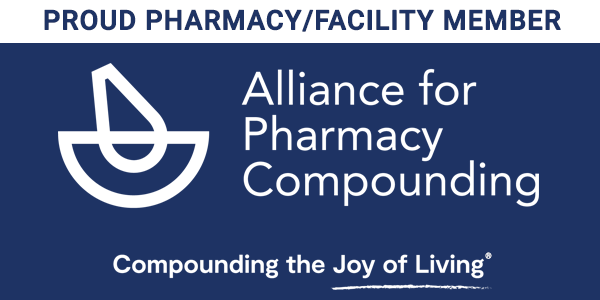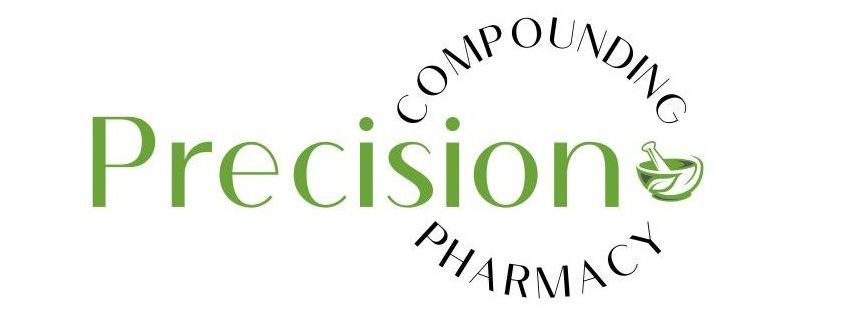FAQ
FAQ
Questions About Compounding?
QuestionsAbout Compounding?
SOMETIMES, MEDICATION IS NEEDED AT A STRENGTH THAT IS NOT MANUFACTURED BY THE DRUG COMPANIES.
Other times, patients simply need an alternate method to take a medication. Pharmaceutical compounding meets these needs. It provides a way for doctors and compounding pharmacists to customize an individualized prescription for the specific needs of the patient. From combining multiple medications into a single, convenient dosage for hospice patients to delivering cough medicine to children through a cherry-flavored lollipop, compounding provides solutions to needs not easily met by commercial products.
What is compounding?
Pharmacy compounding involves preparing a specific dose of a medication for a patient. The practice dates to the beginning of pharmacy itself, but its presence in the industry has changed throughout the years. During the 1930s and 1940s, about 60% of all prescription medications filled were compounded. But with the advent of drug manufacturing during the 1950s and 1960s, compounding declined quickly. The pharmacist’s role became more of a dispenser of medications rather than a preparer of them. However, during the past two decades, compounding has made a comeback, as technological advances and technical innovation have allowed more pharmacists to meet specific patients’ needs via compounding medications. It is estimated that about 1% of all prescriptions filled today are compounded.
How does compounding benefit me?
Prescription medication is compounded for several reasons. The primary one is what healthcare professionals call “patient non-compliance.” There are many people who are allergic to fillers and dyes used in pills or are sensitive to the standard drug strengths. With the physician’s approval, a compounding pharmacist can alter the strength of a medication to make it more specific to the patient’s needs, easier to ingest, and even more palatable in some cases. The medication can also be made into several different forms, such as a sublingual troche, lollipop, or transdermal gel. And for those patients who have difficulty swallowing pills, a suspension can be made.
Can my child or elderly parent take compounded medication?
Yes! In fact, they are often the patients who benefit from compounding. Parents often have a difficult time getting their children to take medicine due to the taste. A compounding pharmacist can work with both you and your doctor to select a flavor of choice to make it taste better.
Compounded medication can also be used to manage chronic pain. For example, some patients who suffer from arthritis may have difficulty taking certain anti-inflammatory medications, as they can cause gastrointestinal side effects. Working with the doctor, a topical preparation can be made for them. This is often done for hospice patients.
What kinds of medication can be compounded?
Nearly all of them can! They are ideal for patients who need a very specific dose of a medication that is not available from the drug manufacturer. Medications such as hormones, veterinary meds, pain meds, and more can be made into solutions, suppositories, and many other dosage forms for both the patient’s convenience and medication compliance.
Does my insurance cover a compounded medication?
Since these medications are not required to have a National Drug Code ID number assigned to them, some insurance providers will not directly reimburse the pharmacy. However, most providers will allow for patient reimbursement with the proper claim forms. While you may have to pay the pharmacy for the full cost of the medication up front, your insurance provider may cover it once the claim forms have been received.
Is compounding expensive?
Compounded medications do not necessarily cost more than conventional forms of medication. The cost depends on the dosage form and equipment needed, as well as the pharmacist’s time spent making the medication. Pharmacists have access to pharmaceutical-grade chemicals that may cost less.
Is compounding legal and safe?
Compounding has been around since pharmacy itself and is used in all areas of the industry. During the last decade, compounding has experienced a resurgence thanks to advances in technology and research. The Food and Drug Administration’s policy states that compounded medications are both legal and ethical if they are prescribed by a licensed practitioner and compounded by a licensed pharmacy. Compounding is also regulated by state boards of pharmacy.
Does my doctor know about compounding?
Drug manufacturers aggressively market their products, so despite the recent uptick in compounding, there are some physicians who may not be aware of its extent. Ask your physician first, then call Precision Compounding Pharmacy. We are committed to providing high-quality patient care. We will work together to come up with the best form of medication therapy for you.
Precision Compounding Pharmacy, Inc.
15722 W Center Rd, Omaha, NE 68130 | Call (402) 932-6373 | Fax (402) 932-6068
Monday–Friday 9:00am-5:30pm
Follow Us



WEBSITE DESIGN
BY HEARST MEDIA SERVICES, ALL RIGHTS RESERVED
